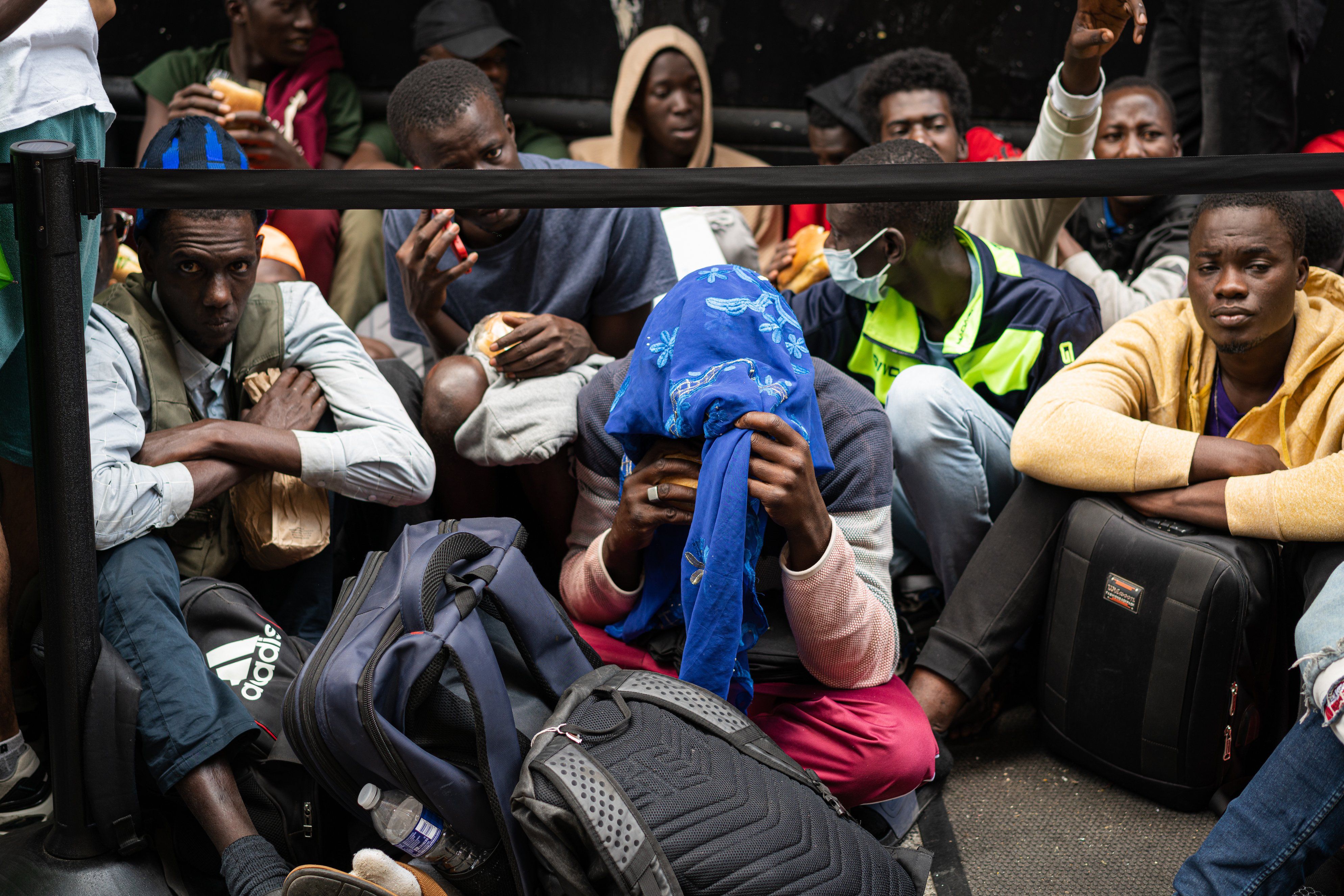“This will destroy New York City”: What the Big Apple’s immigration crisis tells us about the 2024 elections
Immigration has long been a hot button issue in US politics, typically pitting Republicans, who advocate for tougher crackdowns on undocumented migrants, against Democrats, usually more open to asylum seekers. But New York City is currently flipping the script on that.
This week, New York City Mayor Eric Adams – a Democrat – gave a scathing address about the influx of migrants who’ve entered the city over the past year, around 100,000 in total. Many have been bused in from Republican-run states.
Adams said that another six buses carrying migrants arrived in the city on Wednesday, and blasted the White House’s immigration policy. This will “destroy New York City,” he said.
(Read more about the factors leading to an uptick in migration to the US here and here.)
A recap. Over the past year, Republican governors in Texas and Florida have sent busloads of migrants to Democrat-run “sanctuary cities” that have a range of policies that aim to protect undocumented migrants’ rights. Cynical GOP ploy? Maybe. But the strategy has brought into renewed focus the argument that traditionally pro-migrant Democratic states on the coasts don’t appreciate the systemic pressures facing border states.
It isn’t just the mayor. Adams, an unpredictable politician who’s also a former cop and a former Republican, isn’t the only New York Democrat calling out the Biden administration. Gov. Kathy Huchul, a party stalwart broadly regarded as a Biden ally and a pragmatist, has also taken aim at the White House for the current crisis, which has seen around 10,000 migrants enter the state per month, putting immense pressure on local budgets that need to fork out funds for housing, schooling, and meals.
Adams says the governor has been too slow to dole out state funds to help the city cope and that the federal government should be doing more both to slow the flow of migrants and to support the city’s ability to absorb those who make it through.
Both Hochul and Adams have called on the White House to expedite work authorizations for asylum seekers to ease pressure on the city and state. Biden, currently touring Asia, has stayed mostly mum.
Democrats in general have good reason to be worried about how this is playing. Last year’s midterm elections were disastrous for the New York branch of the party, with Republicans – who ran largely on an anti-crime agenda – making gains in suburban areas throughout the state.
With immigration a top concern for many US voters, and 82% of New Yorkers polled describing the migrant influx as a “serious problem,” the Democratic Party is in a difficult spot: Any efforts to slash funding for the 57,000 migrants currently in New York City’s care – which some Dems in vulnerable seats have backed – will ignite the left. But doing too much could create more backlash in more moderate or swing district areas of New York state that the party needs to win in order to take back the House of Representatives next year.
